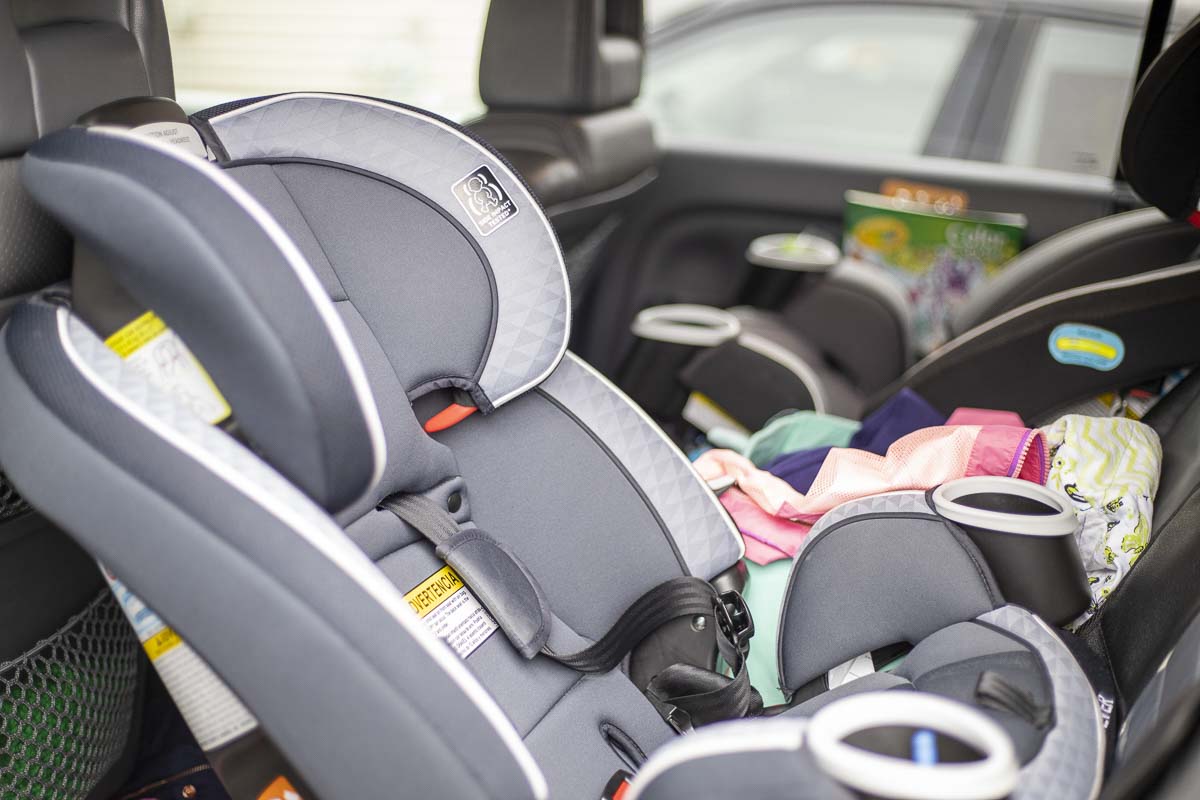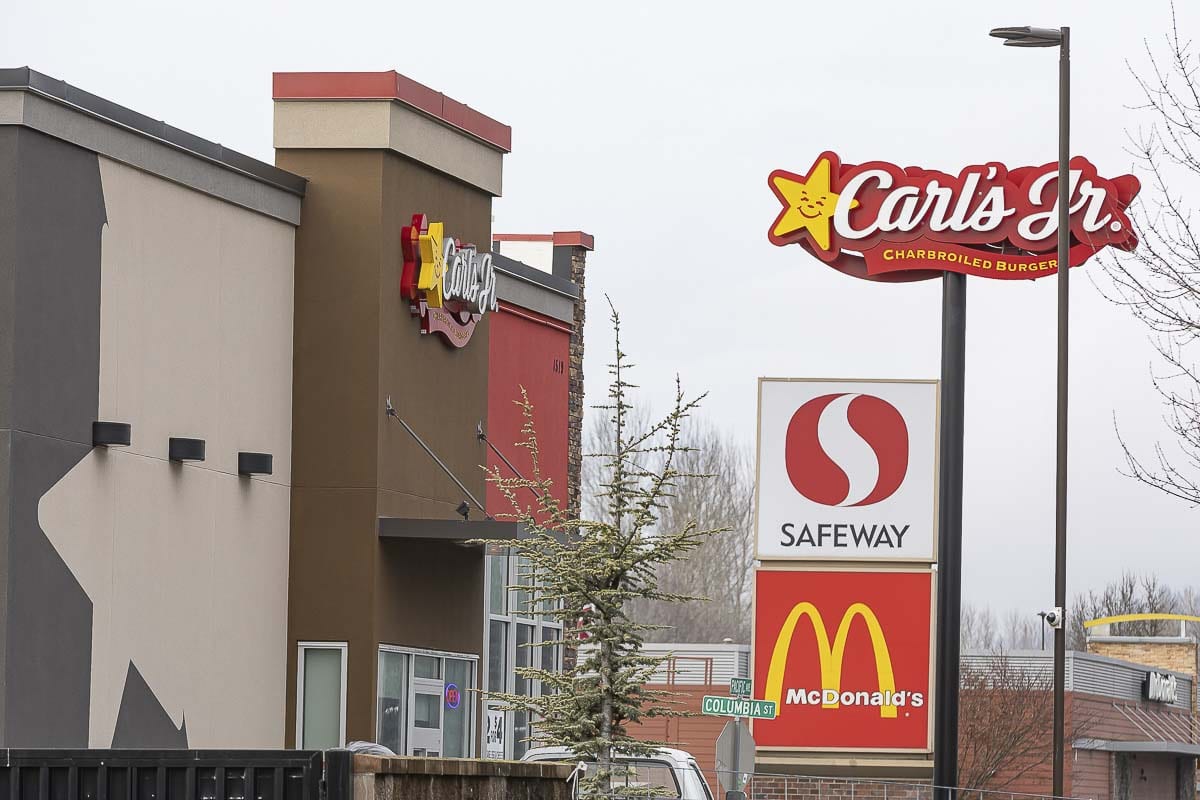Tobacco age increase and new car seat rules among the changes
With the new year just around the corner, there are some new laws going into effect as of Jan. 1 that you may want to be aware of.
New car seat rules
Starting in the new year, Washington state is updating its rules for car seats, which could see some pre-teens headed back to a booster seat, depending on how tall they are.

Under the law, signed by Gov. Jay Inslee in April, any child under the age of two must be rear-facing in a car seat. While they can legally be faced forward after the age of two, the law suggests that children be kept rear-facing as long as possible, until they reach the maximum height or weight listed by the car seat manufacturer.
After children are moved to a forward-facing position, the new law says they should remain that way until at least age four, though the recommendation is that they remain in a full harness forward-facing seat as long as possible. Many seats can fit children forward-facing up to 65 pounds.
Children over the age of four, but under 4-foot-9, who have outgrown the harness, must remain in a booster seat. Under the new law, most children will remain in a booster seat until at least age 10 or 12.

Unchanged with the new law, drivers can still be ticketed if a child under the age of 16 is found to not be using the correct seat belt, booster, or child seat, based on age, weight, or height.
The changes were made to align Washington state law with the 2011 American Academy of Pediatrics guidelines.
“These changes will help parents protect their children on the road,” said Dr. Beth Ebel, a professor of pediatrics at the University of Washington School of Medicine and member of the Washington State American Academy of Pediatrics. “This change brings us in line with current best thinking about keeping kids safe.”
Tobacco age raised to 21
Starting Jan. 1, the minimum age to purchase tobacco products in Washington state will be raised to 21. The change makes Washington the ninth state to raise the tobacco age to 21.

The law was introduced by Rep. Paul Harris (R-Vancouver), and approved with bipartisan support during the 2019 legislative session.

“This is also going to save our state money in the long run,” said Harris in a news release after the bill was signed into law. “A preventive measure like Tobacco 21 will decrease health care expenditures from tobacco-related illnesses.”
A 2014 survey by the U.S. Surgeon General showed nearly 95 percent of smokers started before the age of 21. A similar law approved in Massachusetts saw a 50 percent reduction in tobacco use among high school students.
“By passing this bill, the Legislature is saving thousands of Washingtonians from a lifetime of addiction and smoking-related illnesses,” said Washington Attorney General Bob Ferguson, who first proposed the change in 2015. “Because 18- to 20-year-olds supply younger teens with tobacco and vape products, this will reduce the number of cigarettes and vape products in our high schools, which will lead to fewer kids getting addicted.”
President Donald Trump, as part of a spending bill approved by Congress, recently signed into law a change in the federal tobacco age from 18 to 21. While the Food and Drug Administration had up to 180 days to update its regulations, a post on Dec. 20 to their website said “it is now illegal for a retailer to sell any tobacco produce—including cigarettes, cigars, e-cigarettes—to anyone under 21.”
The website said further details on the rule change, and plans to enforce age checks on anyone who appears to be under 30 years old, would come at a later date.
It remains unclear how these rule changes will impact the tobacco shop that recently opened on Cowlitz Tribal land near ilani casino.
The FDA website says “retailers on tribal lands must comply with all applicable federal laws and regulations for retailers.”
The agency also says it is in the process of working with tribal governments to urge them to comply with the new law, and work to reduce the prevalence of smoking by American Indians.
As for whether the new state law can apply to tribal lands, an FAQ put together by the state Liquor and Cannabis Board says “it depends.”
“The tobacco and vapor 21 legislation authorizes the governor to seek government-to-government consultations with federally recognized Indian tribes regarding raising the minimum legal age of sale for tobacco products in tobacco compacts,” the FAQ reads. “The authority to negotiate tobacco compacts is delegated to the Department of Revenue and the Liquor and Cannabis Board is consulted during the negotiations. As of summer 2019, these consultations have not yet begun, but the Office of the Governor must report on the status of these consultations to the legislature by December 1, 2020. Separate from these government-to-government consultations, tribes may also individually adopt ordinances or codes increasing the age of sale for tobacco and vapor products from 18 to 21.”
Minimum wage increase
The statewide minimum wage will increase to $13.50 on Jan. 1.

The increase is the final one under Initiative 1433, which passed in 2016, and mandated yearly minimum wage increases from 2017 to 2020. After next year, minimum wage increases will be tied to inflation.
When I-1433 was passed, Washington’s minimum wage was $9.47 per hour, $2.22 higher than the federal minimum wage and eighth-highest among all U.S. states and Washington D.C.
According to Working Washington, the increase from $9.47 to $13.50 per hour represents a change of $8,000 per year for minimum wage employees who work full-time.

Individual cities are still able to approve their own minimum wage increases. Seattle approved a $15 minimum wage in 2014, phased in over several years. SeaTac’s minimum wage is $15.64 per hour.
Paid Family Medical Leave
In the 2018 legislative session, lawmakers approved the Paid Family Medical Leave act, which impacts anyone who worked at least 820 hours in the past 12 months.
The program, funded through a new payroll deduction for businesses with more than 50 employees, allows workers to take advantage of 12-18 weeks of paid leave for events like birth or adoption, serious health issues for yourself or a family member, or military events such as the return of a loved one.
The program is funded through employer contributions, as well as a payroll deduction. Any business under 50 employees currently isn’t required to contribute, but their employees would still be eligible to take advantage of paid leave.
The payroll deduction amounts to around $2.44 per week for an employee earning $50,000 annually, according to information provided by the state.
Employees earn 90 percent of their usual income through the program, up to a total of $1,000 per week.
If you had a qualifying event in 2019, you’re still eligible to apply for leave in 2020, so long as you give your employer 30 days notice about when you plan to begin the leave.




